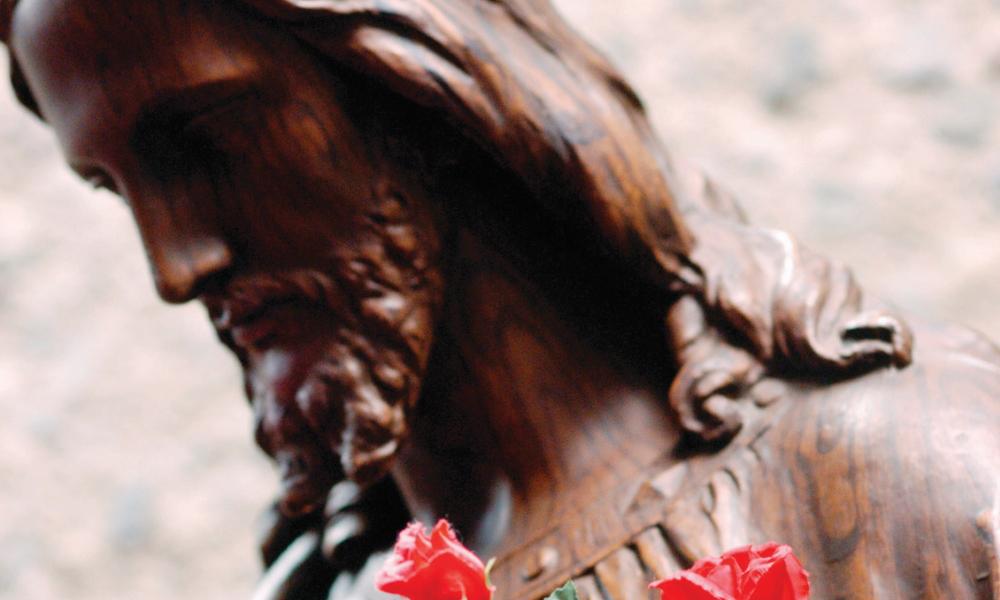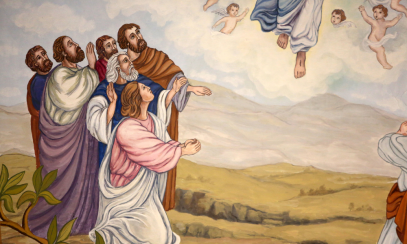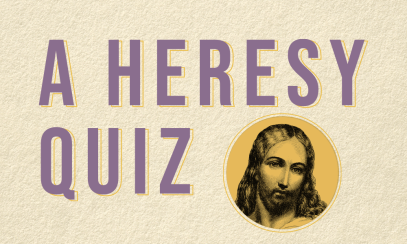
Jesus Is the Way That Leads to Communion With God the Father
The Eucharist is the source and summit of the Christian life. Yet many Catholics do not fully understand the richness of this most important sacrament. Consequently, Theology 101 this year is exploring both what it means to view the world through Catholic eyes, and the different facets of the Eucharist, in the hope of fostering a deeper appreciation of the Eucharist’s place in the life of Catholics.
Our lives will be orderly and full only to the extent that we live in harmony with that for which we were made – to the extent that we live in communion with God. Of course, this is easier said than done, especially because of sin. This matter is complicated further because, as we asserted previously, we are a mystery to ourselves as our identity rests ultimately with the God who is also a mystery and hidden forever from our direct grasp. So we must ask, what are we to do?
The centrality of Christ
In his apostolic exhortation, Ecclesia in America, Saint John Paul II states that Jesus Christ, the Incarnate Lord, is the heart of the Trinitarian communion. Jesus Christ is the Word made flesh, the perfect revelation of God the Father’s love for humanity, and the Savior of the world. Jesus, likewise, presented himself as the one path that leads to communion with the Father and therefore with the fullness of the Trinity when he said, “I am the way and the truth and the life.” (Jn 14:6)
Christ is the Truth of God as communion and as the destiny of humanity. Christ is the only way into this communion. Communion with Christ, as communion is what we were made for, is the only authentic life.
But how can we walk this path? How can we enter into communion with the Son who is in perfect communion with the Father and Spirit?
One place to start is to consider why Jesus became human in the first place. Why did he empty himself to take the form of a slave and die on a cross? One word: salvation. Salvation comes from the root word salve which means “to heal, to make whole.” Jesus came to fulfill the plan of communion that was the Father’s from the beginning. Jesus, as the heart of this communion, became the “salve” for humanity so that all may be one in God.
Obedience and communion
How did he do this? He became obedient, even unto death. Now, obedience can sometimes get a bad rap these days. However, obedience comes from the Latin obedire which has as one of its meanings “to listen to.” And this is exactly what the Word of God did in terms of the Father’s will.
For example, if we look only at what Jesus taught, we learn from him that he taught only what he heard from the Father in perfect conformity to the Father’s will.
“But the one who sent me is true, and what I heard from him I tell the world.” (Jn 8:26)
“So Jesus said [to them], ‘When you lift up the Son of Man, then you will realize that I AM, and that I do nothing on my own, but I say only what the Father taught me.’” (Jn 8:28)
The New Testament provides many other examples of this same truth, but the point is that Jesus was/is in perfect communion with the Father and Spirit: of the same mind, with the same love, united in heart, thinking one thing. He maintained this communion (because he is that communion) throughout his earthly ministry and he would not break this communion for anything. And the essence or living out of this communion consisted in his obedience to the Father’s will.
A few examples
When Jesus had completed his 40 days and 40 nights of fasting in the desert, Scripture tells us he was hungry. Satan, seeing his opportunity, approaches him and tells him to change the stones to bread to eat in order to prove he truly was the Son of God. To this temptation, Jesus quotes Deuteronomy 8:3, “One does not live by bread alone, but by every word that comes forth from the mouth of God.” (Mt 4:4) In other words, he quoted the Word of God, which reveals the mind and will of the Father.
Later, we have that famous scene in the Gospel of Mark in which Jesus has just taught his disciples that he “must suffer greatly and be rejected by the elders, the chief priests, and the scribes, and be killed, and rise after three days.” (Mk 8:31) To this, Peter responds by rebuking Jesus, telling him not to go (this was, of course, right after Peter had just confessed Jesus to be the Messiah, but so it goes with Peter).
Jesus’ reply was shocking, “Get behind me Satan. You are thinking not as God does, but as human beings do.” (Mk 8:33) Remember, communion with God is to be of the same mind, same love, united in heart and thinking one thing with God.
In the Garden of Gethsemane, Jesus, indeed, asked for the cup he was about to drink from to be taken away. However, he immediately followed this request by submitting to the will of the Father, “but not what I will but what you will.” (Mk 14:36) Finally, when the people and soldiers mocked and challenged him to come down from the cross, Jesus simply responded, “Father, into your hands I commend my spirit.” (Lk 23:46)
Now, it is precisely because Jesus Christ never broke communion with the Father that he was revealed not only to be the Son of God, but he was the perfect revelation of the mind, love, heart and thought of the Father, of the Triune God to humanity! And this is why we can trust the Word of God as expressed through Scripture, Tradition and the teaching of the Magisterium … but more on this next time.
THE EUCHARIST: SOURCE AND SUMMIT
The catechism teaches us that the Eucharist is “the source and summit of the Christian life.” This makes sense because the Eucharist is Christ himself. Consequently, the Eucharist is the source of the Christian life for the Body of Christ flows from Jesus Christ alone.
At the same time, the Eucharist is the summit. Again, the Eucharist is Christ and is therefore the heart of our communion with God.
Consider the words used before our reception of the Eucharist. The priest tells us to behold the Lamb of God who takes away the sins of the world. We respond that we are not worthy, but that Jesus only needs to say the word (he is the Word) and our souls shall be healed, made whole and saved.
Then, at the moment of our reception, we are presented with the Body and Blood of Christ. When we say “Amen,” through the power of the Holy Spirit, we are in the most intimate moment of communion with the Holy Trinity afforded to us in this earthly life. At that moment, there is no separation from God, or sin. The Eucharist is truly a foretaste of that communion and fullness of identity that await us.
FOR FURTHER REFLECTION
Take a few moments to reflect on the following passage…
As the Father loves me, so I also love you. Remain in my love. If you keep my commandments, you will remain in my love, just as I have kept my Father’s commandments and remain in his love.
I have told you this so that my joy may be in you and your joy may be complete. This is my commandment: love one another as I love you.
John 15: 9-12
1. What does this passage have to say about the key to our living into communion with God? What are the implications of this passage for your life?
2. Christ only said what he heard from the Father and only did what he saw from the Father. He then instructs us to keep his commandments to remain in his love. What does this mean in terms of the significance of the Last Supper and, therefore, the Eucharist?
Doug Culp is Secretary for Pastoral Life & Bishop’s Delegate for Administration in the Diocese of Lexington. He holds an MA in theology from Catholic Theological Union in Chicago.



